Try the Top 5 Teas for Great Skin and Beauty

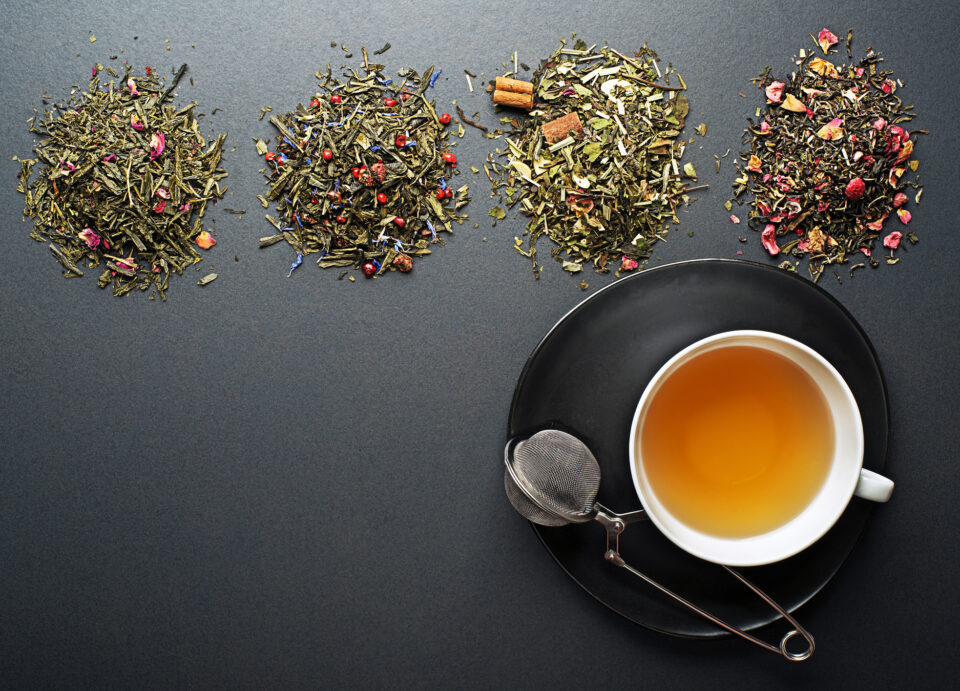
You may have used tea to support your sleep, lower stress, or even manage inflammation, but have you ever used teas for their skin and beauty benefits? Various teas and herbal blends are all hydrating, which is a key factor in maintaining the health of our skin because keeping it hydrated helps slow the visible aging process, improves appearance, and may even prevent oil buildup and acne. If you already have adequate fluid intake from water and hydrating foods, incorporating teas could enhance the look and feel of your skin because of the rich amounts of antioxidants it provides. This is the Foodtrients® list of top 5 teas and herbal blends that are best for your skin and why you should include them today!
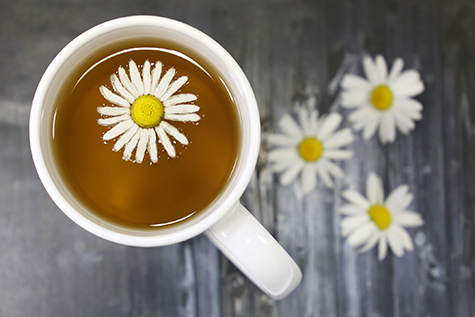 1. Chamomile
1. Chamomile
Chamomile tea is one of the most popular herbal teas used to treat skin issues topically and it can also help heal from the inside as well. It’s been used for years to help manage rashes, dry, patchy, and inflammatory skin conditions. The flavonoid antioxidant content in chamomile flowers and their essential oils possess anti-inflammatory properties that penetrate below the skin’s surface when used topically. A cup of brewed chamomile tea also contains manganese, an important mineral for making collagen, the element that keeps your skin elastic. If you’ve got a lot of food or environmental allergies, consult your doctor if you’re considering herbal remedies like chamomile and if you are pregnant, avoid drinking this type of tea.
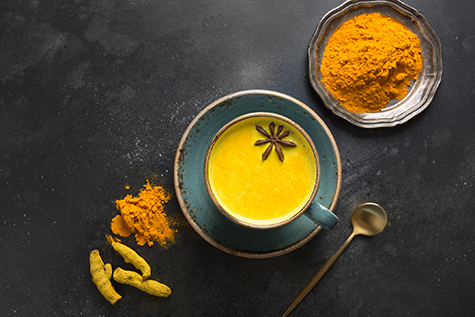 2. Golden Milk
2. Golden Milk
Also known as turmeric milk, a drink traditionally consumed in India, golden milk tea has quickly gained popularity in Western culture. A spice mix made up of turmeric, cinnamon, ginger, and other herbs, it’s a drink with a vibrant yellow color that also offers some glow to your skin! Combined with hot dairy or plant-based milks, this warming drink has been praised for its health benefits like reducing inflammation and even the risk of cancer, and possessing antibacterial, antiviral, and antifungal properties. The strong antioxidant and anti-inflammatory properties may fight against signs of aging, acne scars, and psoriasis and eczema. Enjoy a cup of warm golden milk at night as it also may promote relaxation and good sleep – also good for the skin.
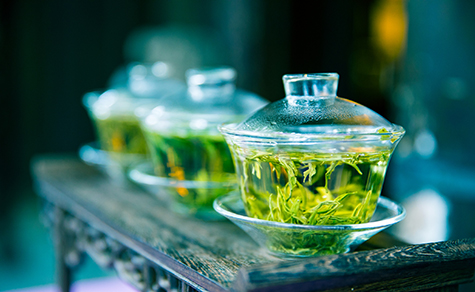 3. Green Tea
3. Green Tea
The sun can also have damaging effects to your skin and green tea has been shown to prevent non-melanoma skin cancer by enhancing DNA repair. Of course, you should still protect your skin with daily sunscreen use but green tea could be a nice boost of support. Green tea has also been shown to have antiviral properties and support the immune system. It is rich in antioxidants, namely “EGCG”, which has heart and brain healthy effects as well – good circulation is critical for healthy skin. Make sure to enjoy a cup of green tea in the morning because it has a bit of caffeine in it for an added boost of energy.
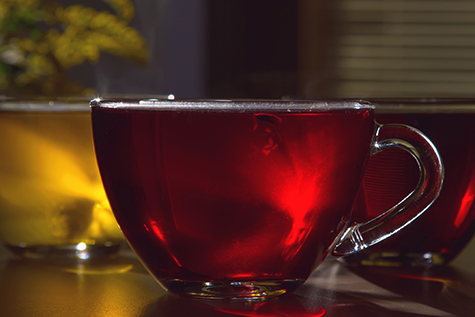 4. Hibiscus
4. Hibiscus
This tropical looking plant can land a spot in your garden and also your skin care routine. Hibiscus flowers make a lovely dark magenta-colored tea and the pink hue is attributed to a powerful antioxidant called anthocyanin which reduces oxidative stress and inflammation that may be associated with aging skin. This type of tea may help your body produce collagen, as hibiscus contains vitamin C which is necessary for collagen synthesis. It’s also high in an antioxidant called myricetin, which has anti-aging properties by slowing down collagen and elastin breakdown. Drinking hibiscus tea is a simple and delicious way to consume more fluids, which is the easiest way to keep your skin hydrated.
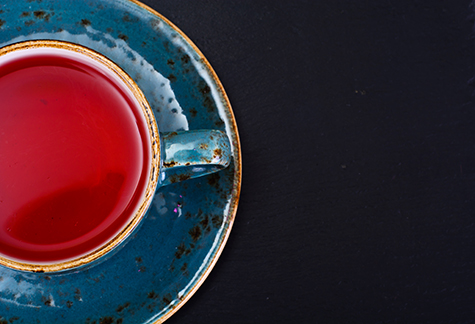 5. Rooibos tea
5. Rooibos tea
Rooibos comes from the Aspalathus linearis plant which is only grown in South Africa. Because of its extremely high antioxidant content, it is often referred to as the beauty elixir by the South African population. Its anti-aging properties may help prevent wrinkles and sagging and it can also be used topically to soothe and reduce skin irritation. Rooibos has been shown to have therapeutic potential for wound healing and protect the skin against UVB radiation from the sun. Rooibos is one of the most versatile teas so enjoy it hot, cold, incorporated into lattes, smoothies, cocktails, or even desserts!
If you are already practicing healthy lifestyle habits such as regular exercise, adequate sleep, maintaining good hydration status, and eating a balanced diet, incorporating these teas into your beauty regimen could enhance the health and beauty of your skin. Make sure to work with your doctor or dietitian to see if herbal remedies could be safe and effective for you based on your unique needs and history.
References
Magcwebeba T, Swart P, Swanevelder S, Joubert E, Gelderblom W. Anti-Inflammatory Effects of Aspalathus linearis and Cyclopia spp. Extracts in a UVB/Keratinocyte (HaCaT) Model Utilising Interleukin-1α Accumulation as Biomarker. Molecules. 2016; 21(10):1323.